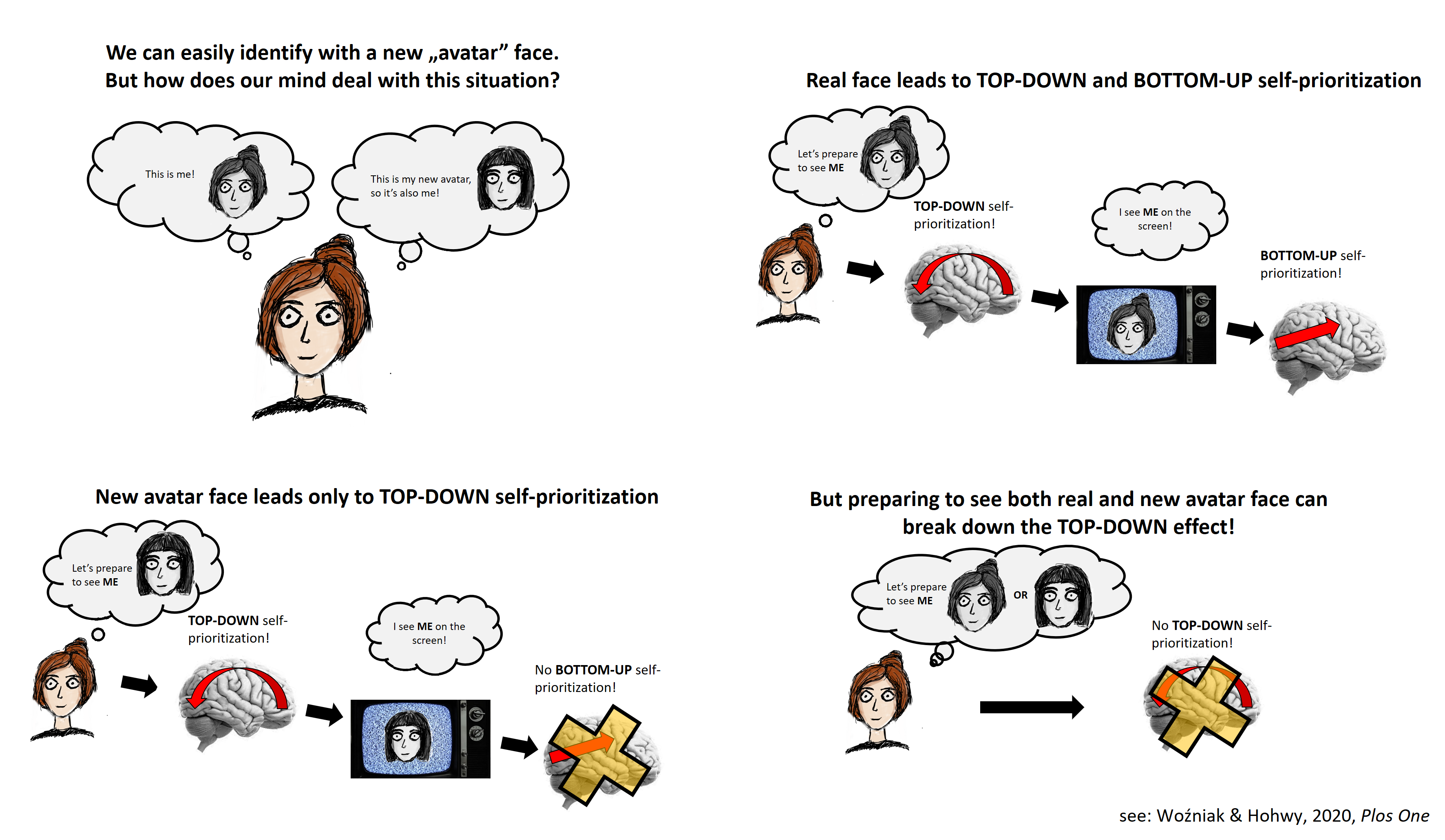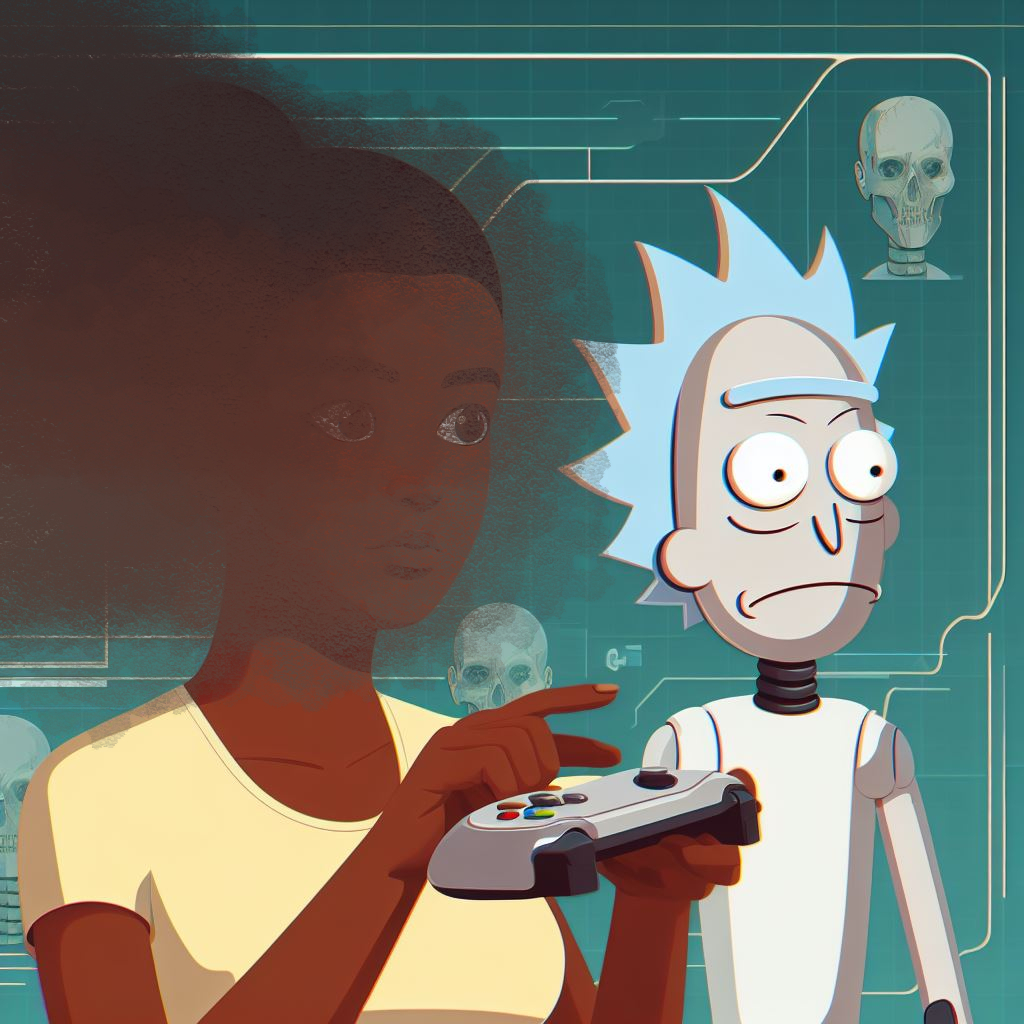What happens when I identify with an avatar face?
When we play computer games with often take control over a body of another person. Lara Croft, Gerald of Rivia, or one of a dozen characters from any fighting game. In such case, we "inhabit" that another person's body, at least for as long as we continue playing. But what happens in our mind and brain when in such situation? In a series of studies we tried to answer this question.
STUDY 1: WE ARE FASTER TO DETECT OUR AVATAR FACE
Article: M. Woźniak & G. Knoblich "Self-prioritization of fully unfamiliar stimuli"
STUDY 2: OUR BRAIN PERCEIVES OUR AVATAR FACE SIMILARLY TO OUR REAL FACE...
Article: M. Woźniak, D. Kourtis & G. Knoblich "Prioritization of arbitrary faces associated to self: An EEG study"
STUDY 3: ...BUT THESE SIMILARITIES ARE LIMITED

Article: M. Woźniak, & J. Hohwy "Prioritization of arbitrary faces associated to self: An EEG study"
STUDY 4: WHEN WE IDENTIFY WITH AN AVATAR FACE WE "ESTRANGE" OUR REAL FACE
 >
>
Article: M. Woźniak, K. Friebe, G. Knoblich & L. Maister "Identifying with an avatar face changes perceptual representation of one’s real face"
STUDY 5: ...AND AVATAR SELF-IDENTIFICATION MIGHT BE ASSOCIATED WITH DEPERSONALIZATION
Article: M. Woźniak, L. McEllin, J. Hohwy & A. Ciaunica "Depersonalization affects self-prioritization of bodily, but not abstract self-related information"
Article: A. Ciaunica, L. McEllin, J. Kiverstein, V. Gallese, J. Hohwy & M. Woźniak "Zoomed out: digital media use and depersonalization experiences during the COVID-19 lockdown"
